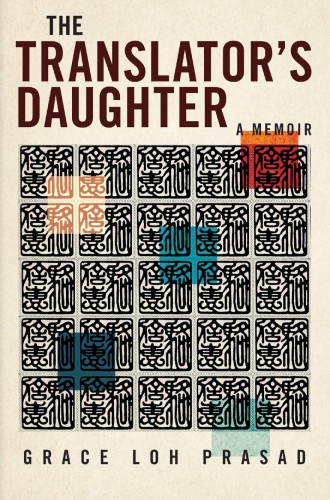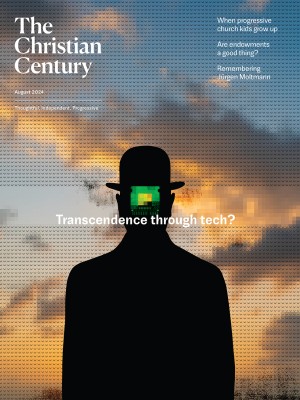A permanent foreigner
Grace Loh Prasad’s memoir shows how the death of parents, for a child of immigrants, represents the vanishing of entire worlds.

The Translator’s Daughter
A Memoir
After her father’s funeral, Grace Loh Prasad finds herself alone in her parents’ apartment in Taiwan, sifting through everything they accumulated through their years of living on multiple continents. Her mother died a few years earlier. She can’t read Chinese, and there is no one left to translate the piles of papers in the offices. The unique stories behind these objects have departed with her parents. Still, as the last surviving member of the immediate family, Prasad must decide what is worth keeping and what will be trashed.
This memoir is an extension of that sorting exercise. Through a collection of beautifully written and moving essays, Prasad combs through her memories to wrestle with the consequences of migration, grief, and identity. It is a universally relatable experience from a unique perspective.
Read our latest issue or browse back issues.
Her parents were professors in Taiwan during the era known as the White Terror—40 years of political repression that started in 1947 when the Kuomintang (China’s nationalist party) took over Taiwan. Thousands of Taiwanese citizens were executed and hundreds of thousands arrested and tortured. Because of their affiliation with pro-democracy dissidents, Prasad’s parents were forced to escape with their two young children in 1971. Prasad explains, “That’s why my parents had come to the States—to give me the voice they did not have.”
Ironically, gaining freedom of speech resulted in the loss of Prasad’s native tongue. Prasad did not live the kind of life readers may associate with immigrants. Hers is not a rags to riches story, nor is it a story of finding a new home. It is the story of a permanent foreigner.
When Prasad’s parents left Taiwan, they both already had PhDs from a prestigious American institution. They were fluent in English and other languages in addition to their native Taiwanese. They immigrated to an academic town in suburban New Jersey where her father worked as a translator of modern and ancient texts. They played Scrabble as a family, and her mom often won. Prasad’s family received United States citizenship and later moved to Hong Kong, where Prasad attended an English-speaking international school. Being a translator’s daughter spared her from serving as the family’s interpreter when she was growing up. This blessing grew into a curse.
Growing up with her own personal translator meant never having to learn a new language. Although she visited her parents regularly after they moved back to Taiwan, they were always with her to mediate conversations in Taiwanese. But slowly, her parents’ ability to translate began to fade—her mother’s to Alzheimer’s and her father’s to Parkinson’s. As their lights dimmed, the world that they enabled her to navigate receded.
Prasad lays bare the helplessness of trying to care for her ailing parents in her alien homeland. Through the beauty of her writing, readers gain insight into the layers of grief immigrants’ children wrestle with when parents die. We lose not only a parent but also the primary link that ties us to our ancestral heritage. The loss of our parents represents the vanishing of entire worlds, the stripping of our right to be in our homeland. Our parents are visible evidence that we belong there. Without them we are just tourists. Our right to be there exists largely in our hearts.
The Translator’s Daughter tells a powerful story of seeking belonging in a globalized world. But what’s largely absent from the book might be of most interest to this audience. Prasad does not explicitly say this, but her father, I-Jin Loh, was one of the most influential figures in Taiwanese Christianity and a well-known scholar who mentored generations of theologians in Taiwan. The first Taiwanese pastor to receive a PhD from Princeton Theological Seminary in the early 1960s, he earned his degree under the shadows of the Chinese Exclusion Act—a law that made it illegal for the likes of him to exist in this country. Loh was not just a translator; he was a Bible translator who oversaw hundreds of Bible translation projects and was responsible for many of the most updated translations of the Bible in various Asian languages today. His work influences congregations to this day. Taiwanese Presbyterians instantly recognize his name. Most can recall meeting him.
How do I know all of this if Prasad didn’t write it in her memoir? I asked my parents. They are holders of such knowledge for me. They are my primary link to a world that I’m primed to lose when I lose them.






